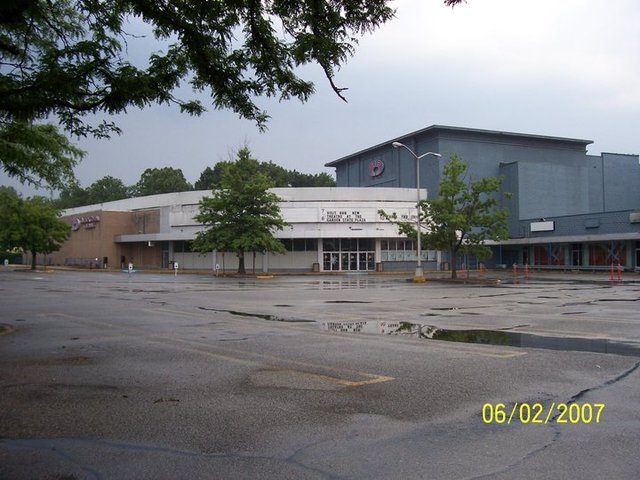In This Section
- Home
- About Us
- Study with Us
- FMT Doctoral Studies
- Research
- CARPE
- Collaborations
- EDI
- People
- Film
- Music
- Theatre
Blog. 'When I Went to the Film' by Gabrielle Ulubay.

In one of my favorite poems, DH Lawrence’s When I Went to the Film, Lawrence describes his experience of going to the cinema, where he “saw all the black-and-white feelings that nobody felt/And heard the audience sighing and sobbing with all the emotions that none of them felt.”...
As enamored as I am with this poem and the concept behind it, I can’t help but think of how different my own cinema-going experience has been from that of Lawrence’s “supremely unfelt” one. On the contrary: Regardless of how the actors felt in making their films, the emotions are real because of how they make me feel, and the laughter or tears that those films elicit are real because I emit them. The emotional impact that films have made on me is so solid and irrefutable that at times it seems I could extract those memories from my head and present them as physical evidence of cinema’s power.
For instance, one of my most distinct memories of going to the cinema is the time I saw The Chronicles of Narnia: The Lion, the Witch, and the Wardrobe (2005) with my mother, my childhood best friend, and her mother on Christmas Eve. We had called the theatre several times earlier in the day to hear an automated machine list each film and its showtimes, before we finally settled on an evening show that would augment our holiday anticipation. The mixture of Christmas excitement and fantastical movie magic made my friend and I delirious, and we shivered on line at the outdoor box office as we waited for our mothers to buy the tickets.
That New Jersey movie theatre, the AMC Loews Paramus Route 4 Tenplex (http://cinematreasures.org/theaters/7715/photos), has since closed down, its vintage seats and lobby arcade games collected with the trash. It has been replaced with a 24-hour gym. The rooms where my brother worked as an usher, where Wyclef Jean and Michael Jackson supposedly frequented, and where I saw some of my first films, have now been filled with weight racks, rows of treadmills, and a swimming pool. But in my mind, there is still a movie theater in that spot along the highway, and I am still ten years old, waiting in the cold to see Narnia.
Seeing the film in a darkened room, popcorn and pink lemonade in hand, sent us on a journey in which we believed not only that the world of the film existed, but that we were part of it. David Lynch once said that making films “allows you to dream in the dark.” To take his comment out of context, I also find that going to the cinema is a similar experience: When we sit in those darkened auditoriums and are presented with a film, we are forced to leave our imaginations alone with the narrative. Thus, we give ourselves permission to believe in the unbelievable without judgement and without being seen. Our analytical, scientifically-minded society has fed our brains, but has also limited our opportunities to indulge our imaginations. Narnia was real that night because we felt it, and we were there. I will never forget the excitement of seeing young girls onscreen, having adventures that I’d been taught were preserved for boys. I will also never forget how excited my friend and I were to crawl to the back of each closet in my house to look for Narnia, much to my mother’s frustration.
The permanence of watching a film, especially experiencing it in a cinema, is often overlooked. It is an emotional, cognitive, and sensory journey that stays with you, even if you can’t remember all the details of the narrative. There is a before-the-film and an after-the-film, a before-Narnia outlook on closets and an after-Narnia outlook. There is a reason so many people save their movie tickets and are particular about where they sit in the theater: On some level, we understand the impressions that going to the cinema make on us, so we endeavor to make those memories as perfect and complete as possible.
That is why, in the age of online streaming, I still choose to go the cinema. It is also why I cannot fully relate to DH Lawrence when he writes about film characters who “Are cast in black and white, and move/In flat ecstasy, supremely unfelt/And heavenly.” For me, going to the cinema is not an exploration of heavenly beings but a vindication of my ability to think, feel, and anticipate. The ecstasy is not flat because it emanates from the screen, and the feelings are supreme but certainly not unfelt. I know this because even films I don’t like make me feel things, and because in spite of my age and my education there is still a part of me that’s convinced I can find Narnia at the back of a closet if I reach far enough.
